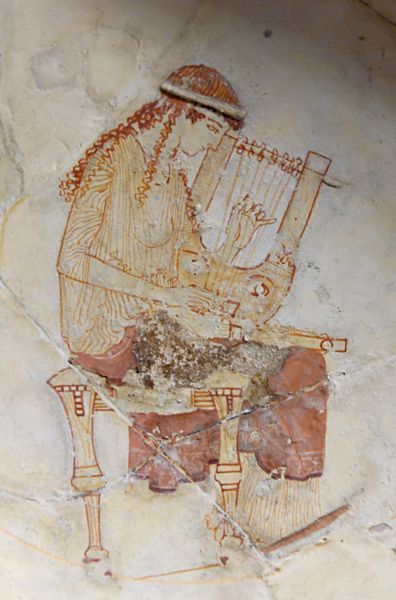As I began flipping through, I came across a little section at the beginning which illustrates how the lute was valued in education in antiquity. Smith quotes Plato:

"...Isn't training in mousike of overriding importance, because rhythm and Harmonia penetrate most deeply into the recesses of the soul and take a powerful hold on it, bringing gracefulness and making a man graceful if he is correctly trained, but the opposite if he is not?" [Plato's Republic, Book III]
As Smith explains, in the Hellenic philosophy of moral education, "mousike" was a coinage from muse-ic, which meant "pertaining to the muses." Music meant not just music, but also poetry, song, dance -- all the attributes of the muses.
This definition -- or now re-definition -- of "music" lays a threshold for a study of the lute that branches in countless cultural directions. The expanded definition connects the lute to disparate aspects of society, and I don't think it is wrong in doing so. The lute's cultural inter-connectivity is what makes it so interesting and remarkable.

